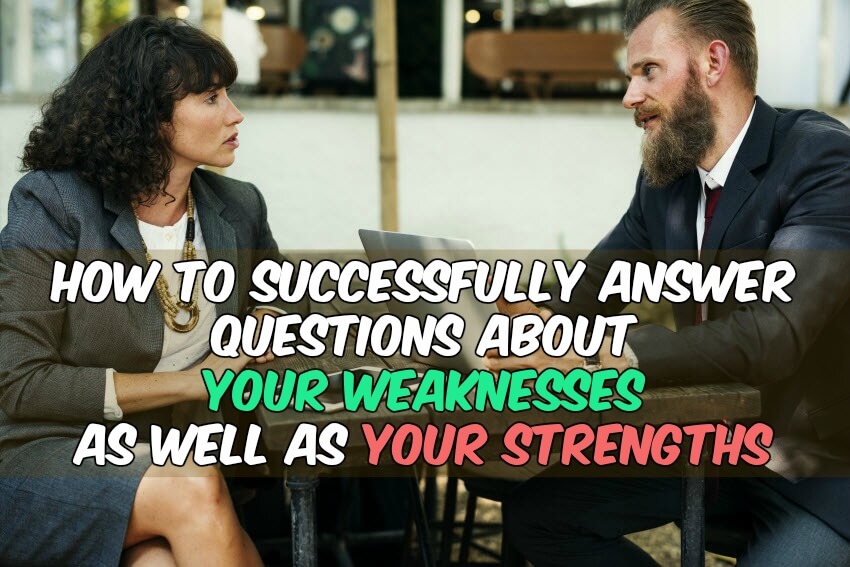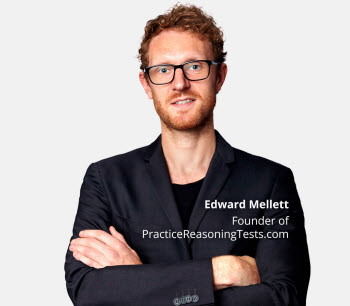How to Answer: What Is Your Greatest Weakness as well as Your Strength
Of all the questions that candidates fear coming up in an interview, the question “What is your greatest weakness?” or “What do you see as your greatest weakness?” is often the most dreaded. Many candidates give unsatisfactory responses and fail to make the most of this opportunity to impress potential employers.
However, by understanding the context and thinking carefully about your personal fit with the job you are applying for, there is no reason why you cannot use strength and weakness related questions as an opportunity to demonstrate your suitability for the role.

Why do employers ask about weaknesses?
First off, everyone has a range of strengths and weaknesses and employers know this. They are not trying to catch you out – they are trying to get a fully rounded idea of who you are, whether you are good fit for their organization, and what support you are likely to need to be successful.
The second reason employers use this question is to get a view on how open you are to feedback and personal development. If someone is unsure or reluctant to talk about their development areas, then they are not someone who is striving to tackle their weaknesses and be the best they can be. They may lack personal insight or direction in life, and that might make them difficult to manage or motivate.
What common interview traps do people fall into?
There are a number of common job interview responses that people give which are not ideal:
- Weaknesses are portrayed as strengths – this is particularly common. People try to turn the question around and describe a weakness in terms they think might be attractive to an employer. Common examples are ‘I work too hard’, ‘I care too much’ or ‘I’m a perfectionist’. It’s understandable – everyone wants to make a good impression – but it’s not honest and it doesn’t give the employer any actual information about the support you are likely to need to get up to speed.
- Tell them everything – another common response is for the candidate to tell the employer the entire, unedited list of their issues, concerns and weaknesses. You need to be a bit more strategic than this. An employer who hears a huge list of unrefined and ill-defined weaknesses is likely to have doubts about the candidate, as once again, they are clearly not self-aware and working towards addressing these issues. In this instance employers may also worry about their self-control and ability to present themselves professionally. You can absolutely talk yourself out of a job offer.
- Not being sure – sometimes candidates are genuinely unaware of their development areas and therefore cannot discuss them. This shows a lack of personal awareness and demonstrates that they have never proactively sought feedback or aimed to improve their performance. Both no-no’s from an employer’s perspective.
- Being unwilling to discuss weaknesses – this is quite similar to being unsure, but in this case the candidate is aware of their development needs but is reticent to discuss them. This will come across as defensive and may indicate to the recruiter that the candidate is likely to struggle to take on-board criticism or be open to alternative perspectives or ways of working. They may also lack resilience.
How to answer “What is your weakness” successfully
The best answers are thoughtful, sensitive and development focused. The candidate is aware of their weaknesses and is able to talk about what they are doing to work on them, and how they plan to mitigate their impact in the role they are applying for.
To prepare your answer there are a number of questions/activities that would be useful:
- Make sure you know what your actual weaknesses are – If you don’t know, go and find out! Find a way of validating that these are in fact your genuine weaknesses (and other areas are not). Ideally, you will have sought out and received some sort of feedback; 360-degree feedback is ideal because it allows feedback to be corroborated from a number of different perspectives. Remember, every strength if overplayed can become a weakness; for example, if you are very innovative and thrive on change, this means that you probably struggle with routine and get bored having to follow set processes and procedures day-in-day-out so identifying the flip-sides of your strengths is another useful area to think about.
- Be clear on how you will develop in these areas – You need to have a development plan in place. This should include things you have done already to build on your weaknesses, and things you plan to do in the future.
- Relate your weaknesses to the job description/person specification – Take a look at the job description and identify any areas where your weaknesses may be an issue. For example, if the job description talks about the need to manage multiple competing objectives, then you would need to organized to do the job. If you have many weaknesses in relation to the job description then it may be worth considering other roles because even if you get the job, you are unlikely to enjoy it. Also think about areas of the job description where you lack knowledge or experience. For example, if the job description requires use of a particular software package you have never used before, then this is a development area you need to raise.
- Rehearse your answer – Make sure that you can tell the recruiter in an assertive and pragmatic manner what your weaknesses/development areas are, how you know this, what you have done to address them, and what you plan to do in the future. If you can also note that you are focused on your personal development, and constantly seek to improve yourself and your performance, even better. Be honest but strategic about the weaknesses you share; for example, if a core requirement of the role is that you are calm under pressure, then sharing that you are very emotional and tend to struggle in conflict environments is going to undermine the chances of you getting the role.
About Ed Mellett
Ed Mellett is an entrepreneur and careers professional. He founded PracticeReasoningTests.com to help jobseekers with employee assessment tests. He also co-founded and launched the leading student and graduate careers website wikijob.co.uk. Now in its 11th year, wikijob attracts over 400,000 unique users per month and is a must-visit resource for students considering their careers post-university.
This entry was posted in Guest Posts, Interview Tips, Tips for Jobseeker.

